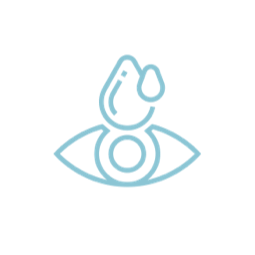Preventing Blindness in Canada
Glaucoma, known as the silent thief of sight, is Canada’s leading cause of blindness. It has earned its nickname because it progresses slowly and can go unnoticed without testing. Regular eye exams are crucial for diagnosing glaucoma and eye conditions that can develop into sight-stealing conditions.
Visit Dr. Bishop & Associates to assess your visual health today.

Glaucoma Symptoms
There are multiple types of glaucoma, and symptoms vary. The general symptoms of glaucoma include:
- Eye pain
- Redness
- Blurry vision
- Vision loss
- Halos or rings around lights
If you experience symptoms suddenly or an increase in intensity, call us for an emergency eye care appointment. This may indicate acute-angle closure glaucoma (narrow-angle glaucoma), which is a medical emergency.
We still want you to give us a call for all other treatments and management. We can help monitor your eye health and prevent worsening symptoms. Vision loss can be prevented. Request an appointment to talk about your sight.
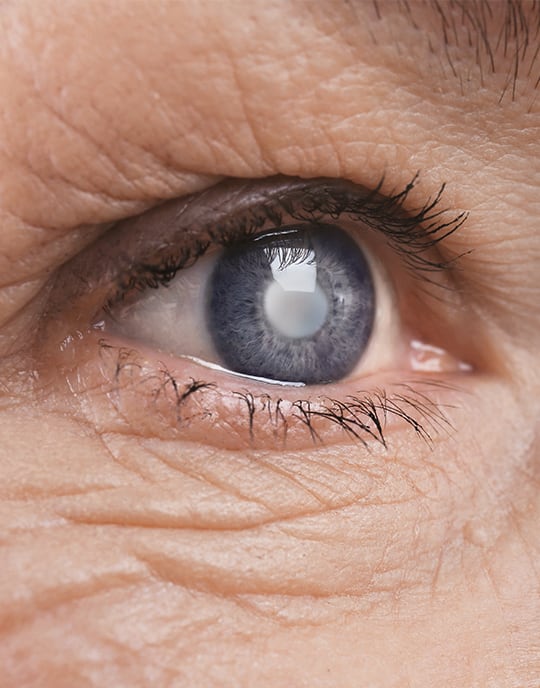
Types of Glaucoma
As glaucoma often has no known cause, it is divided into two main types: primary or secondary. Primary glaucoma develops in the eye. Secondary glaucoma occurs when a health condition outside the eye causes ocular damage.
Read on for more information about types of primary and secondary glaucoma.

Primary Glaucoma
Primary glaucoma develops in the eye. With primary glaucoma, the exact cause of the condition is often unknown.
Open-Angle Glaucoma
Open-angle glaucoma is one of the more common types. The eye condition develops when too much intraocular pressure builds in your eye. The pressure pushes on the optic nerve, which is responsible for interpreting vision for our brain.
Over time, the pressure can damage the optic nerve, affecting vision and leading to blindness. People with diabetes or high blood pressure are at higher risk for developing this type.
Normal-Tension Glaucoma
Normal-tension glaucoma or low-pressure glaucoma is a type of glaucoma where intraocular pressure is not elevated above normal. Instead, it occurs because of poor blood flow to the optic nerve.
Angle-Closure Glaucoma
Angle-closure glaucoma (also narrow-angle or acute glaucoma) is a sudden increase in eye pressure and requires immediate medical attention. It presents with typical glaucoma symptoms but also adds:
- Eye redness
- Severe headache
- Intense eye pain
- Sudden blurry vision
- Nausea or vomiting
- Sudden loss of sight
- Pupils of different sizes
Acute glaucoma occurs when fluid quickly builds in the eye, increasing pressure suddenly. The eye condition can develop rapidly and cause blindness in days. Book an appointment for emergency eye care if you experience symptoms.
Congenital Glaucoma
Congenital glaucoma is a rare condition where infants are born with an eye problem preventing fluid from draining. The draining issue may be partial, which would allow some drainage but not enough for healthy function.
Infants with congenital glaucoma exhibit the following symptoms:
- Cloudy eyes
- Light sensitivity
- Excess tears
- Larger than normal eyes
Early diagnosis and treatment can be effective in preventing permanent vision loss in infants.
Secondary Glaucoma
Secondary glaucoma is caused by a health condition outside the eye. Your eye health is connected to your overall health. If you have health conditions, such as diabetes or high blood pressure, it can impact your eyes and vision.
Neovascular Glaucoma
Extra blood vessels or abnormal blood vessel growth can block fluid drainage, which causes neovascular glaucoma. It’s typically caused by other medical conditions, such as diabetes or high blood pressure.
Treatment requires a diagnosis of the medical condition that is causing the neovascular glaucoma. Then, our health care team can treat your overall health to reduce risk factors for eye conditions.
Pigmentary Glaucoma
Pigmentary glaucoma occurs when pigment (colour) from your iris (the coloured part of your eye) flakes off. The flake disrupts fluid drainage and increases intraocular pressure.
This eye condition typically presents with symptoms of blurry vision or rainbow-coloured rings around lights.
Uveitic Glaucoma
Uveitic glaucoma develops in people with uveitis. Uveitis is an eye condition that causes swelling and inflammation in the eye, sometimes appearing similar to conjunctivitis (pink eye).
Although uveitis is treatable, the longer your eye is inflamed, the more likely you’ll develop scar tissue. The scar tissue in your eye can prevent fluids from draining normally.
If you experience ocular redness, irritation, or swelling, see our optometrists for an eye exam. Assessing your changing eye health can protect your sight.
Our Technology for Diagnosing Glaucoma
When you book a glaucoma eye exam, you will likely come eye-to-eye with these diagnostic technology tools.
iCare Eidon
The iCare Eidon is a confocal fundus imaging system used for taking images of your fundus, the area located at the back of your eye. The scan takes multiple pictures in different modes to provide better contrast and colour detail. The 3D images show sections of your eye, allowing your optometrist to visualize tissue depth. In addition, the noninvasive process is dilation-free.
Non-Contact Tonometer
Tonometry tests measure intraocular pressure (IOP), a significant indicator of optic nerve damage or glaucoma. A non-contact tonometer is a method of testing that doesn’t touch your eye. It’s also known as an air puff test, since the machine blows a quick puff of air at your eye. It’s less invasive than other tonometry tests, which often place a probe or tool directly against your eye.
Visual Field Test
The visual field test is another technology we use to detect signs of vision loss. Once the test starts, small lights begin flashing across various areas of the screen. Every time you see a light flash, you’ll record it (usually with a button) and we can track any areas where your vision is reduced or missing.
Optical Coherence Tomography
Optical Coherence Tomography (OCT) is a non-invasive imaging test that uses light ways to take cross-sectional images of your retina. This helps identify and diagnose ocular conditions and diseases, such as glaucoma and age-related macular degeneration.
Frequency Doubling Technology
Frequency doubling technology (or FDT) is designed to help us detect loss of field of vision due to diseases like glaucoma.
The test places an image with one black and one white bar on a screen in front of you. When we alternate flickering the two bars at various frequencies, they should appear to double. If a patient can’t see the bars at a certain frequency, it may indicate vision loss.
Stop the Silent Thief of Sight
Seeing your optometrist regularly for comprehensive eye exams is the best way to stop the silent thief of sight. Protect your vision and eye health with the expertise of your eye care team.
Book an appointment with Dr. Bishop & Associates today.
Our Locations
You deserve the highest standard of eye care. Our 4 locations make it easy for you to receive quality eye care, no matter where you live.
Willow Park Village
- Phone: 403-974-3937
- Fax: 403-509-4859
- Email: [email protected]
- 575 – 10816 Macleod Trail SE
- Calgary, AB T2J 5N8
Hours of Operation
- Monday: 10:00 AM – 7:00 PM
- Tuesday: 9:00 AM – 6:00 PM
- Wednesday: 10:00 AM – 7:00 PM
- Thursday: 9:00 AM – 6:00 PM
- Friday: 9:00 AM – 6:00 PM
- Saturday: 9:00 AM – 5:00 PM
- Sunday: Closed
Legacy Township
- Phone: 403-974-3937
- Fax: 587-392-7365
- Email: [email protected]
- 230 – 200 Hartell Way SE
- Calgary, AB T2X 4S9
Hours of Operation
- Monday: 10:00 AM – 7:00 PM
- Tuesday: 9:00 AM – 6:00 PM
- Wednesday: 10:00 AM – 7:00 PM
- Thursday: 9:00 AM – 6:00 PM
- Friday: 9:00 AM – 6:00 PM
- Saturday: 9:00 AM – 5:00 PM
- Sunday: Closed
Beacon Hill
- Phone: 403-974-3937
- Fax: 403-509-4854
- Email: [email protected]
- 615 – 11877 Sarcee Trail NW
- Calgary, AB T3R 1W5
Hours of Operation
- Monday: 10:00 AM – 7:00 PM
- Tuesday: 9:00 AM – 6:00 PM
- Wednesday: 10:00 AM – 7:00 PM
- Thursday: 9:00 AM – 6:00 PM
- Friday: 9:00 AM – 6:00 PM
- Saturday: 9:00 AM – 5:00 PM
- Sunday: Closed
Northgate Village
- Phone: 403-974-3937
- Fax: 403-509-4866
- Email: [email protected]
- 103 – 495 36 St NE
- Calgary, AB T2A 6K3
Hours of Operation
- Monday: 10:00 AM – 7:00 PM
- Tuesday: 9:00 AM – 6:00 PM
- Wednesday: 10:00 AM – 7:00 PM
- Thursday: 9:00 AM – 6:00 PM
- Friday: 9:00 AM – 6:00 PM
- Saturday: 9:00 AM – 5:00 PM
- Sunday: Closed
Our Google Reviews

Willow Park
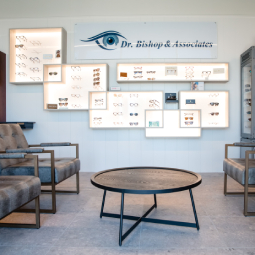
Legacy Township
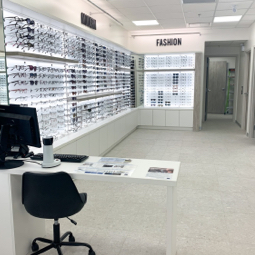
Northgate Village
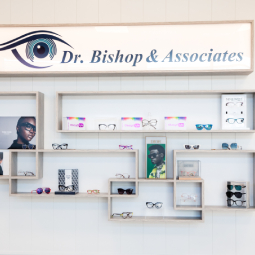
Beacon Hill
News & Resources
Can Cataracts Return After Surgery?
Eye ConditionsCataract surgery is one of the most common and successful procedures worldwide, offering countless patients clear vision and a renewed quality of life. However, one question often lingers in the minds of those who undergo the procedure—can cataracts come back after surgery? Fortunately, cataracts cannot return after surgery because the cloudy lens is removed and […]
Wet vs Dry Age-Related Macular Degeneration
Eye ConditionsAge-related macular degeneration (AMD) is the leading cause of vision loss in seniors, yet many people know little about it until they or a loved one receives a diagnosis. Many may also not know that AMD has two stages: dry and wet. Dry macular degeneration (MD) is the first stage of the eye condition, and […]
How to Unclog Your Meibomian Glands
Dry EyeWhen was the last time you thought about the health of your eyelids? If you’re like most people, probably not often—until discomfort strikes. Meibomian gland dysfunction (MGD) is a common condition that can cause dry, irritated eyes. These tiny glands line your eyelids and play a significant role in keeping your eyes hydrated and comfortable. […]
Can Cataracts Return After Surgery?
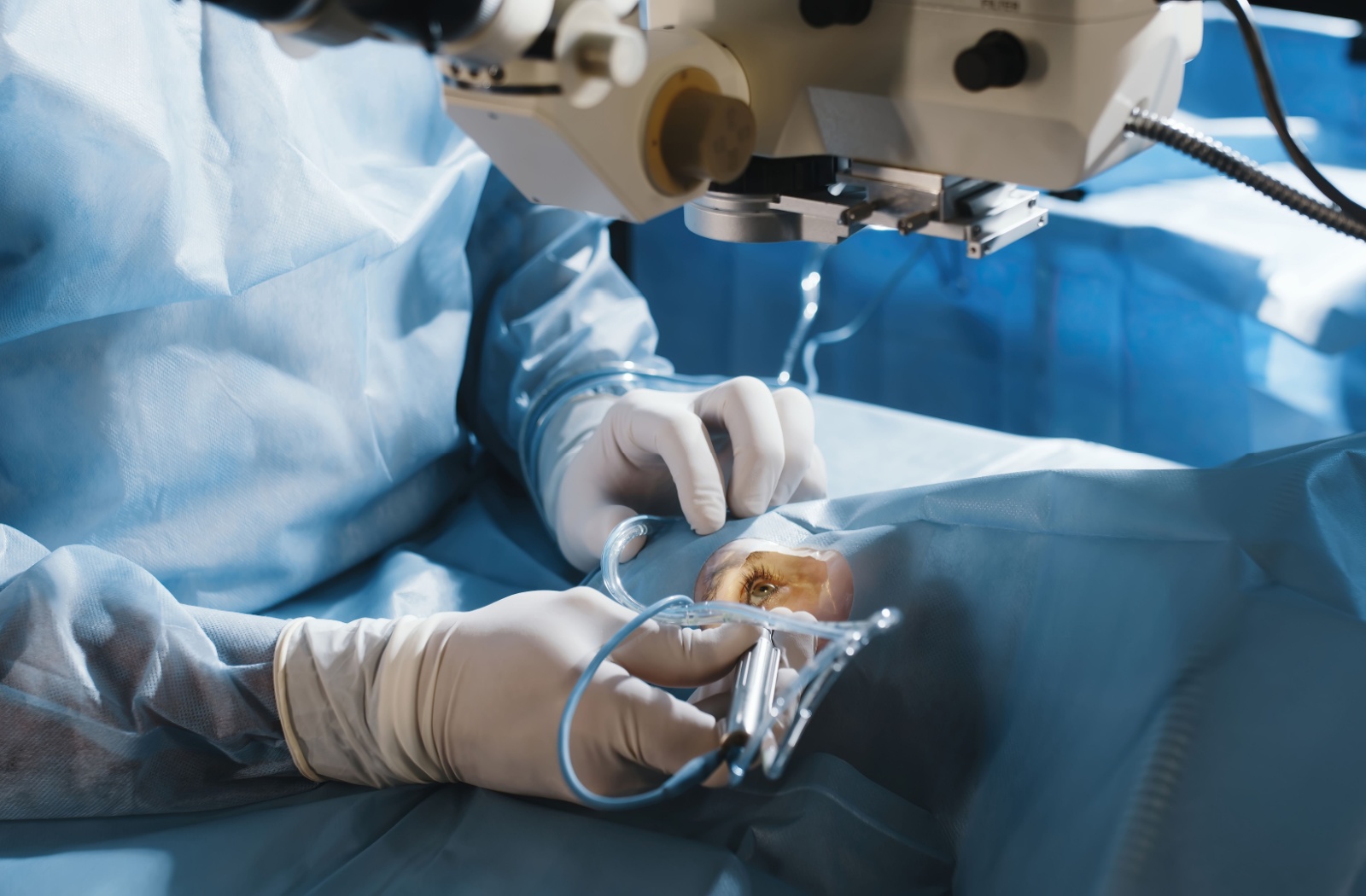
Cataract surgery is one of the most common and successful procedures worldwide, offering countless patients clear vision and a renewed quality of life. However, one question often lingers in the minds of those who undergo the procedure—can cataracts come back after surgery? Fortunately, cataracts cannot return after surgery because the cloudy lens is removed and […]
Wet vs Dry Age-Related Macular Degeneration
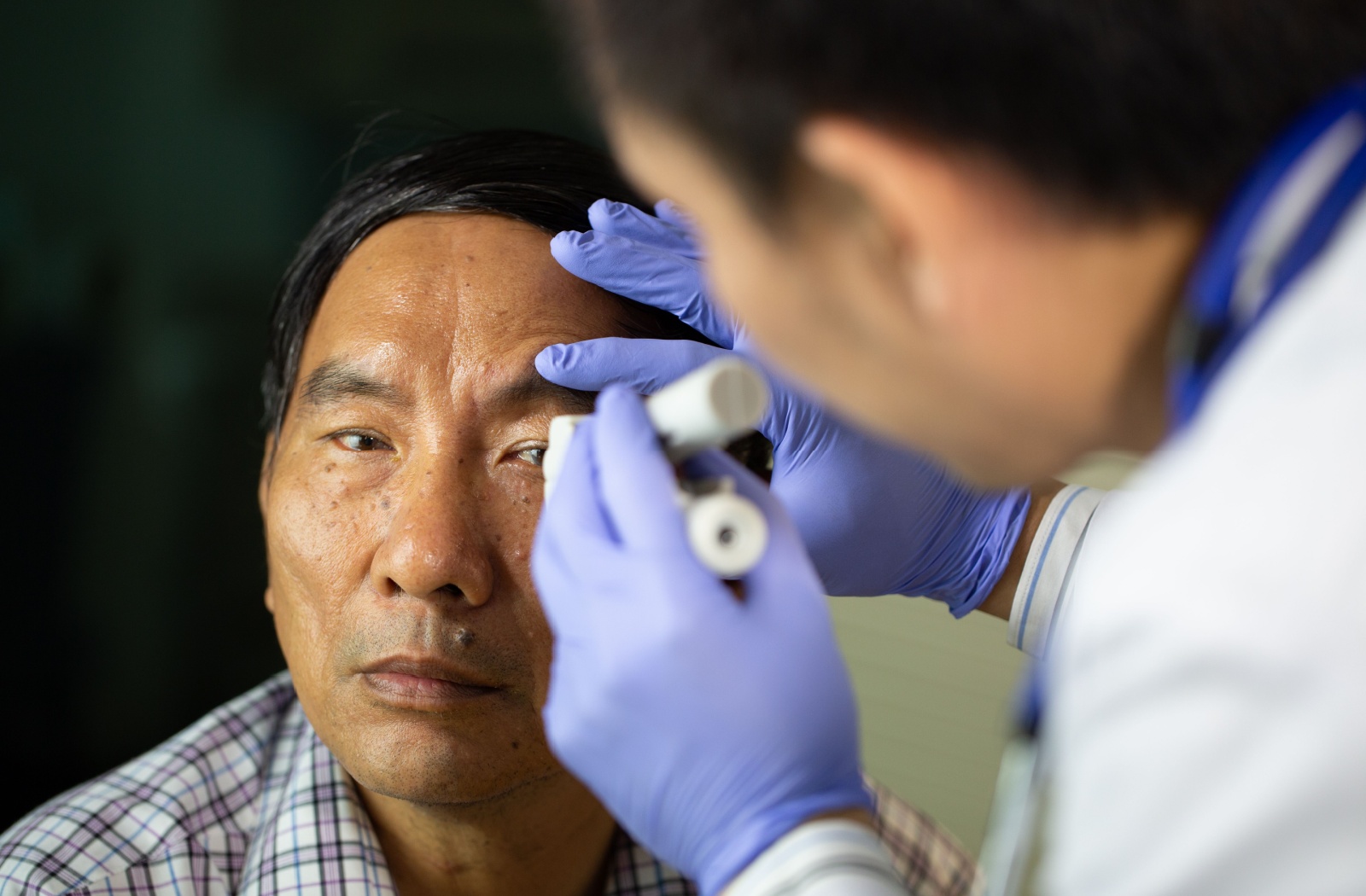
Age-related macular degeneration (AMD) is the leading cause of vision loss in seniors, yet many people know little about it until they or a loved one receives a diagnosis. Many may also not know that AMD has two stages: dry and wet. Dry macular degeneration (MD) is the first stage of the eye condition, and […]
How to Unclog Your Meibomian Glands

When was the last time you thought about the health of your eyelids? If you’re like most people, probably not often—until discomfort strikes. Meibomian gland dysfunction (MGD) is a common condition that can cause dry, irritated eyes. These tiny glands line your eyelids and play a significant role in keeping your eyes hydrated and comfortable. […]


